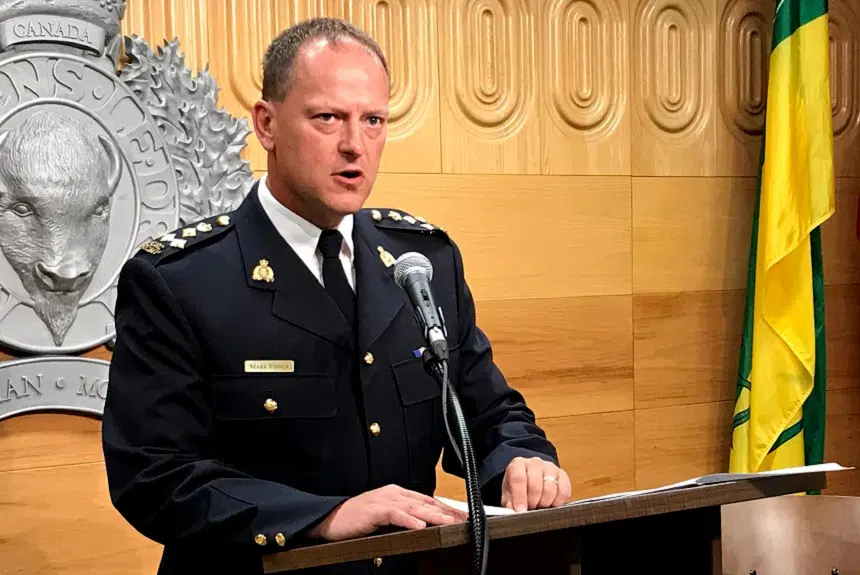The commanding officer of the RCMP in Saskatchewan wanted to know what community leaders had heard about racism by police officers, so he reached out.
In a conversation with Gormley on Thursday, Assistant Commissioner Mark Fisher said he contacted members of a cultural diversity advisory committee with whom he regularly meets — and he heard their message loud and clear.
“A couple of the members of that committee talked about how it’s a really draining moment for them emotionally, even in having some of these difficult discussions with friends (and) with neighbours,” Fisher said. “That really impressed upon me the impact that this issue has had and how difficult that discussion can be.
“Having said that, it is a time for change. We in policing in all of the agencies across the province embrace that and want to be part of that discussion moving forward.”
Rallies and protests have happened around the world since the death May 25 of George Floyd, a black man who died after a white police officer in Minneapolis knelt on Floyd’s neck.
Complaints about police brutality and racism have been made for years, and Fisher is well aware it’s an issue that still must be addressed.
“That expectation and that bar on our behaviour and our understanding of the impact of our behaviour is there; it’s there for all of us in policing,” said Fisher, who’s also the president of the Saskatchewan Association of Chiefs of Police.
“We know that that’s the expectation of the public and anything we can do to increase awareness, to build on public trust on some of these issues, is important and something we all work towards.”
Recruits deal with the subject during training at police academies in the province and, Fisher said, regularly attend events and listen to speakers.
It’s that latter aspect of training that Fisher believes has the biggest effect.
“What’s probably the most moving and most important is any chance we get to expose any of our police officers to somebody with lived experience,” he said. “That’s where it really sinks in — the power of how they’ve been impacted historically, in some cases recently, and to understand the impact in communities around that.”
Fisher said training is an ongoing process, and the Mounties rely on community leaders for advice on how to improve the education of officers in the future.
For Fisher, one of the most valuable tools is getting into the field.
“It’s the importance of going to events and knowing your community and getting involved,” he said. “The more you do that, the more you understand some of the issues that several of these communities have been dealing with for years and the impact our system has on that and our role in combating racism.
“We need to be having these discussions and participating in them and definitely being clear that there is no tolerance for (racism) when we see it, to take action as community leaders at any rank or level in policing.”
Fisher spoke about building trust within communities and being transparent and accountable when mistakes are made. He pointed to the need for independent reviews of incidents involving police officers as a way to foster that accountability.
The problem, Fisher said, is that racism exists in society — and police officers are members of that society.
“We’re not immune to that in policing,” he admitted. “When we see racist acts or racist comments, we have a duty to stand up and speak out against that and take action and be part of the solution.”







